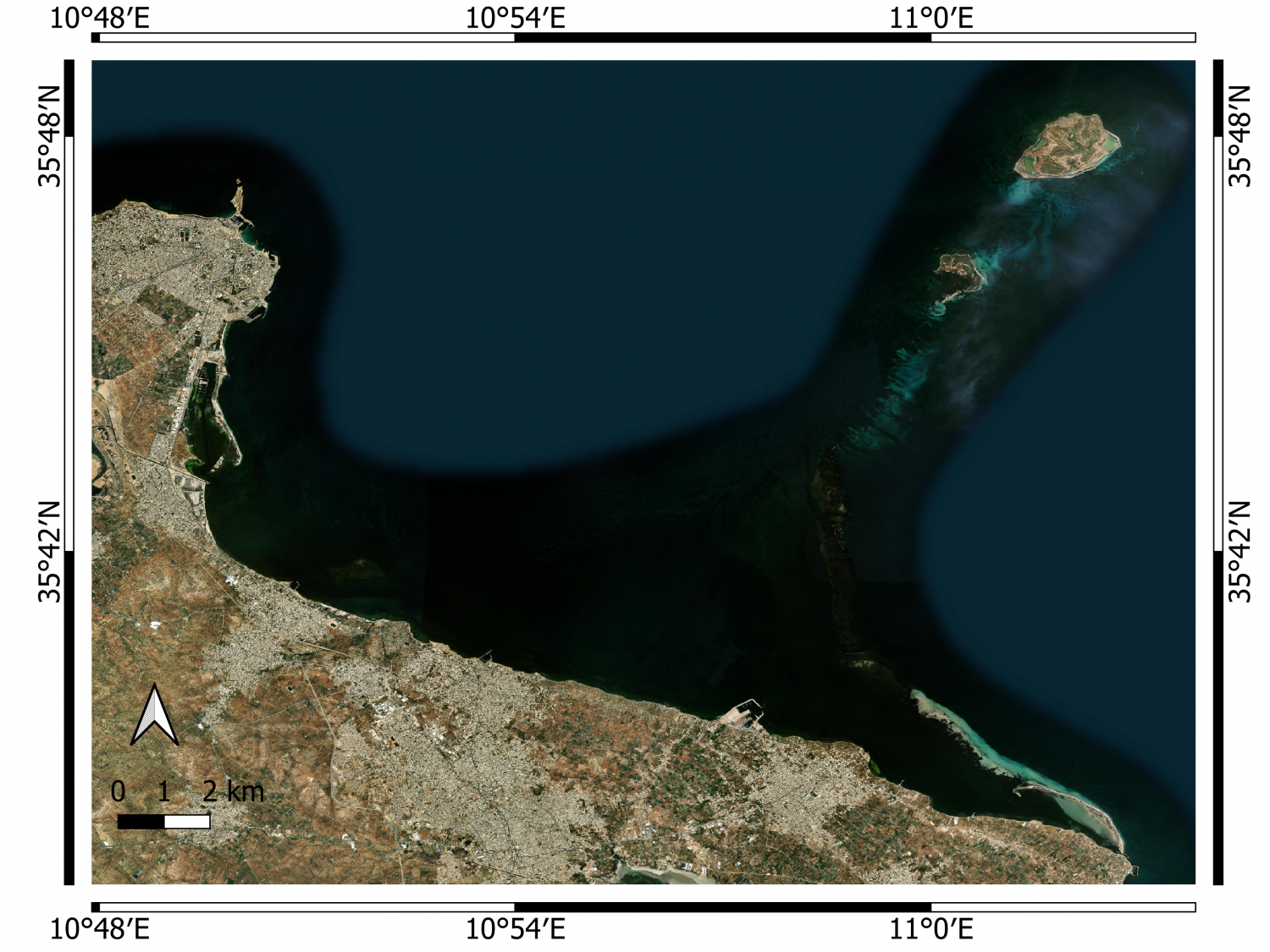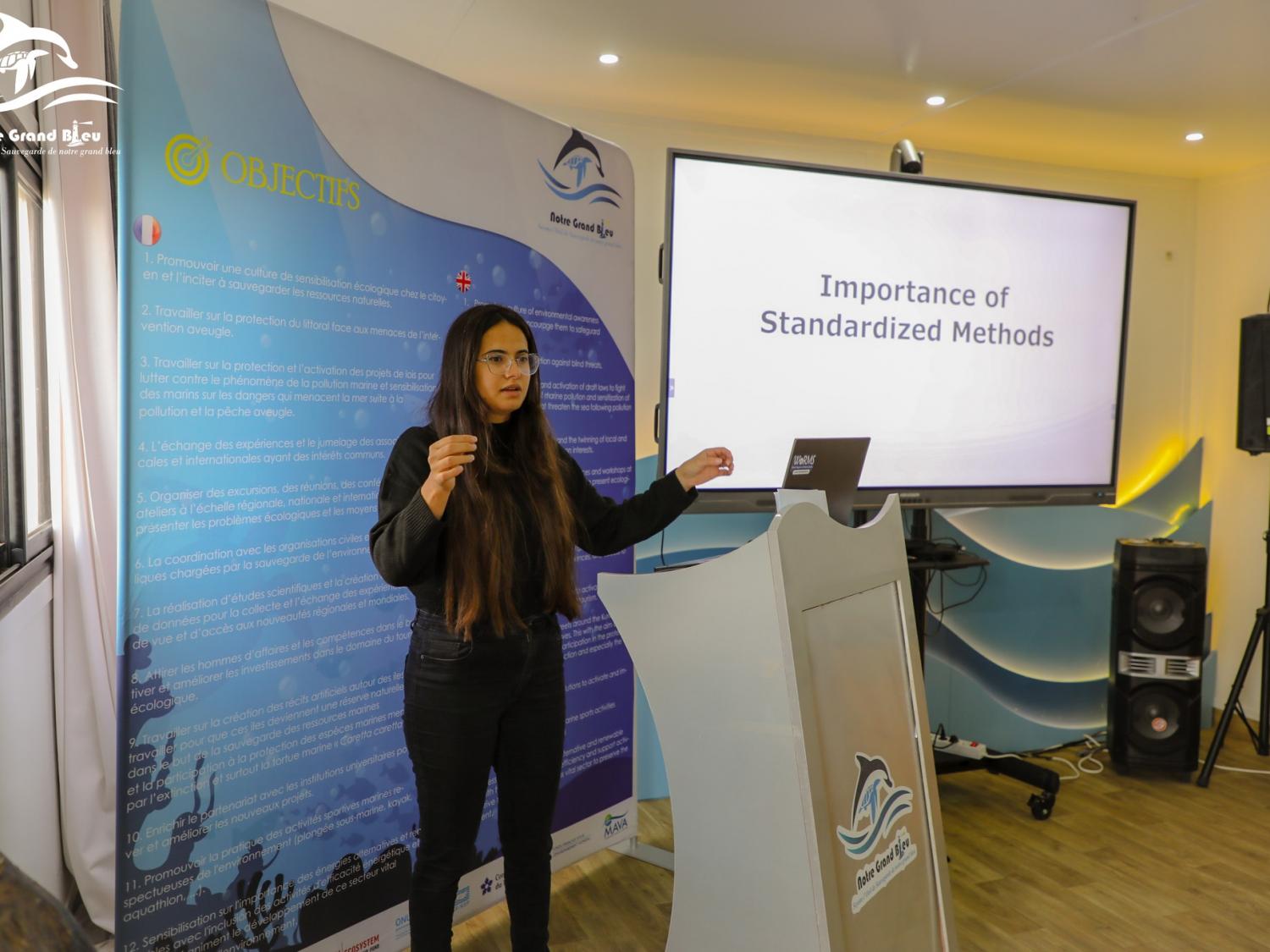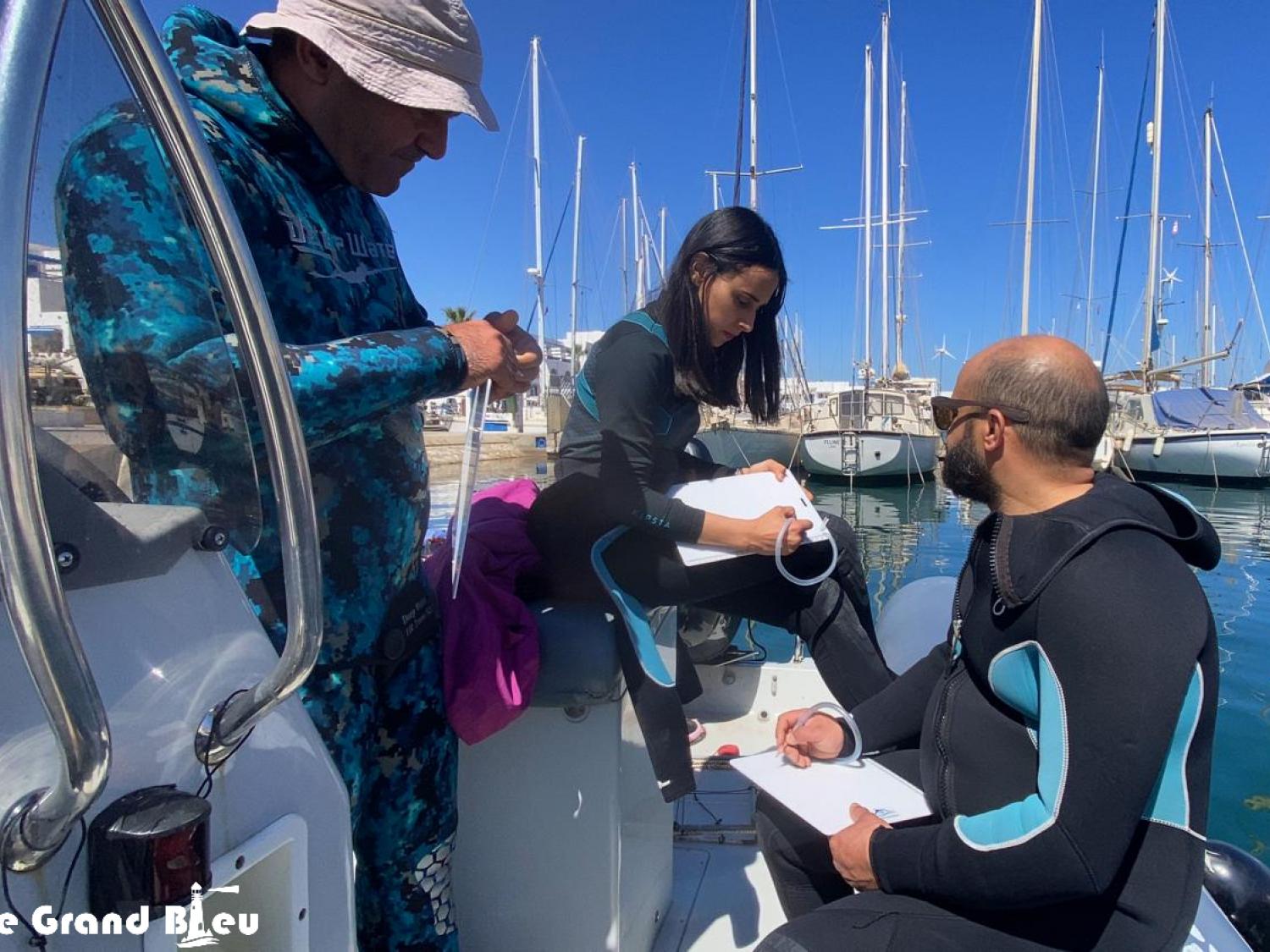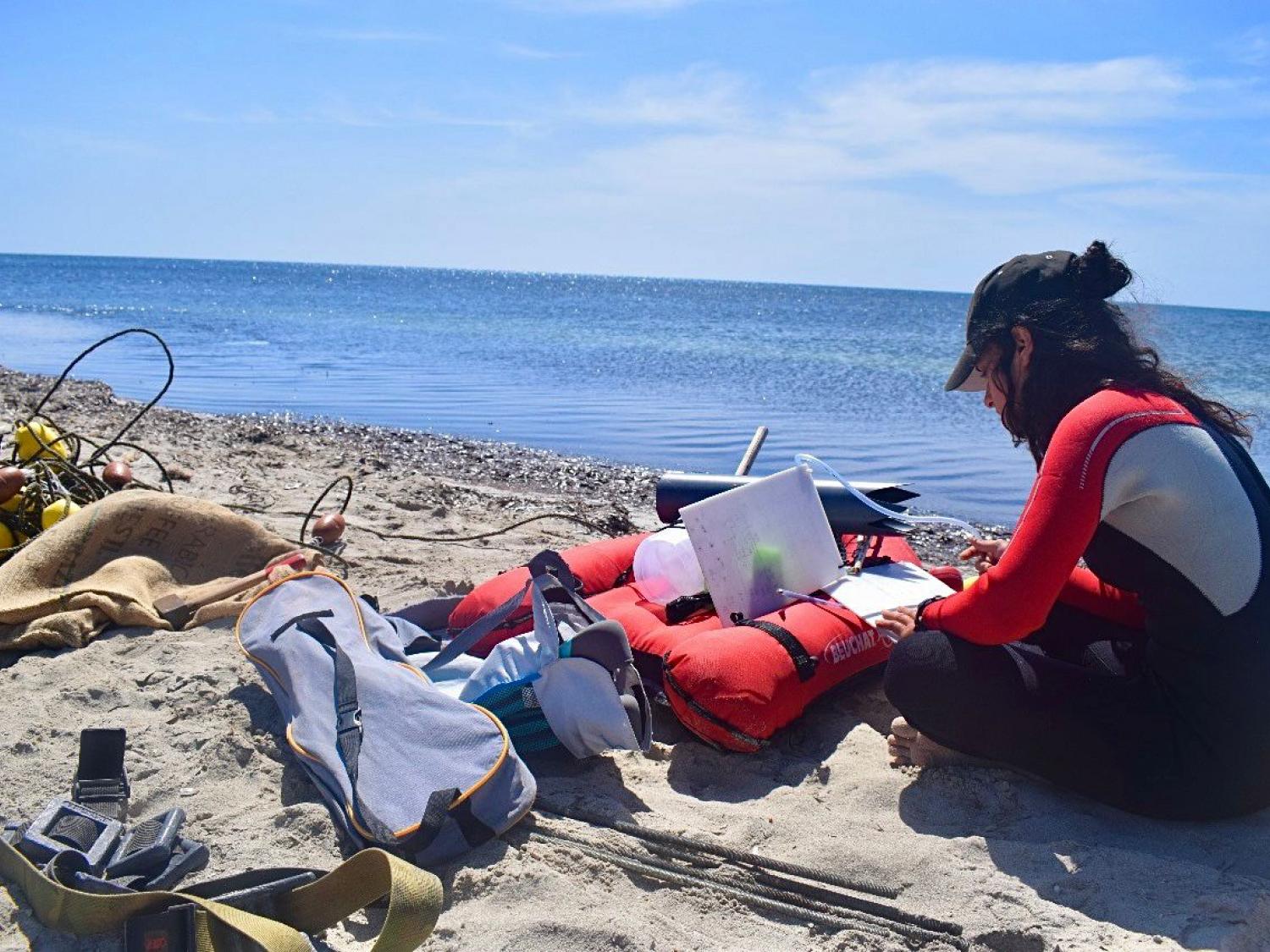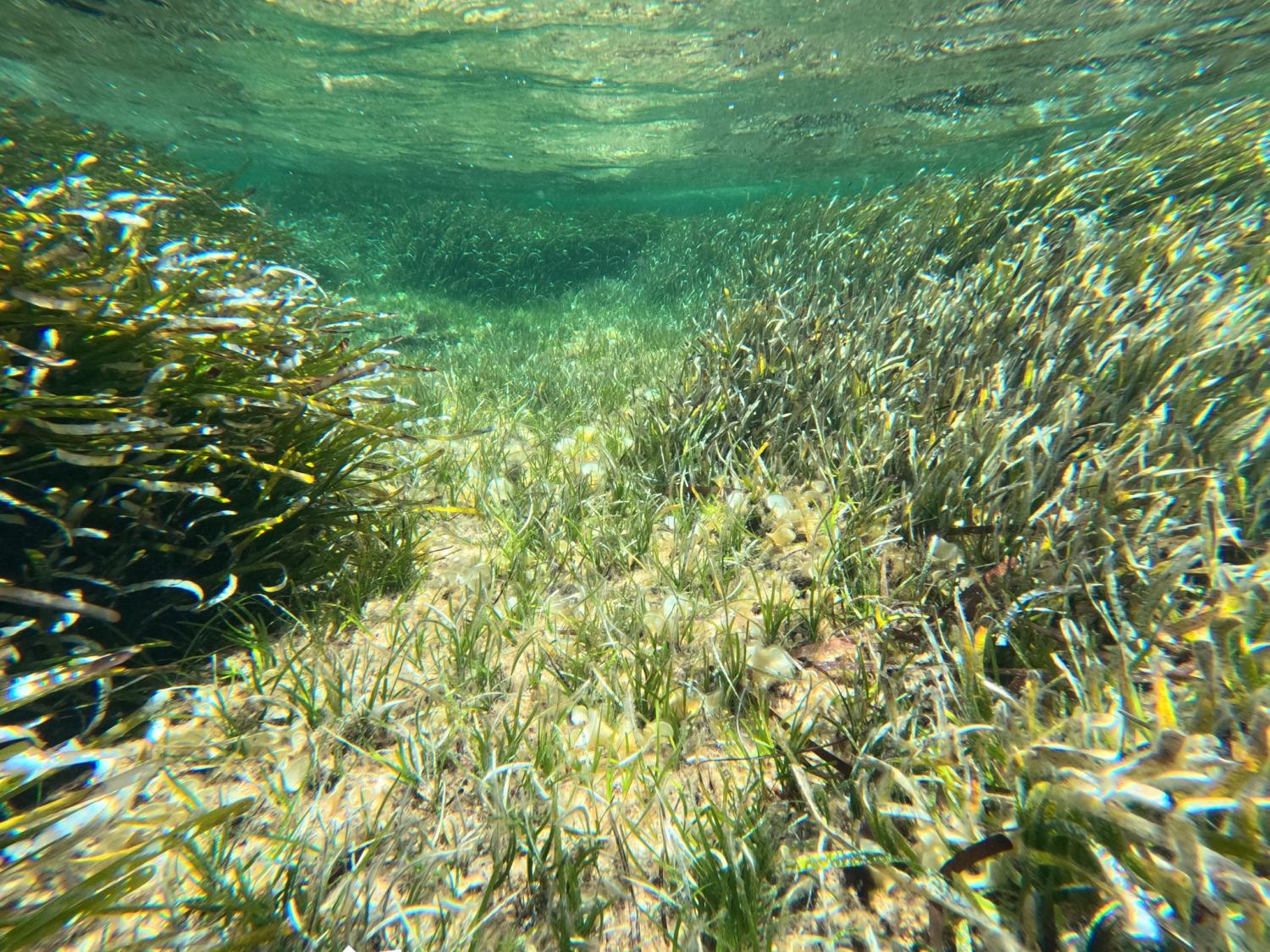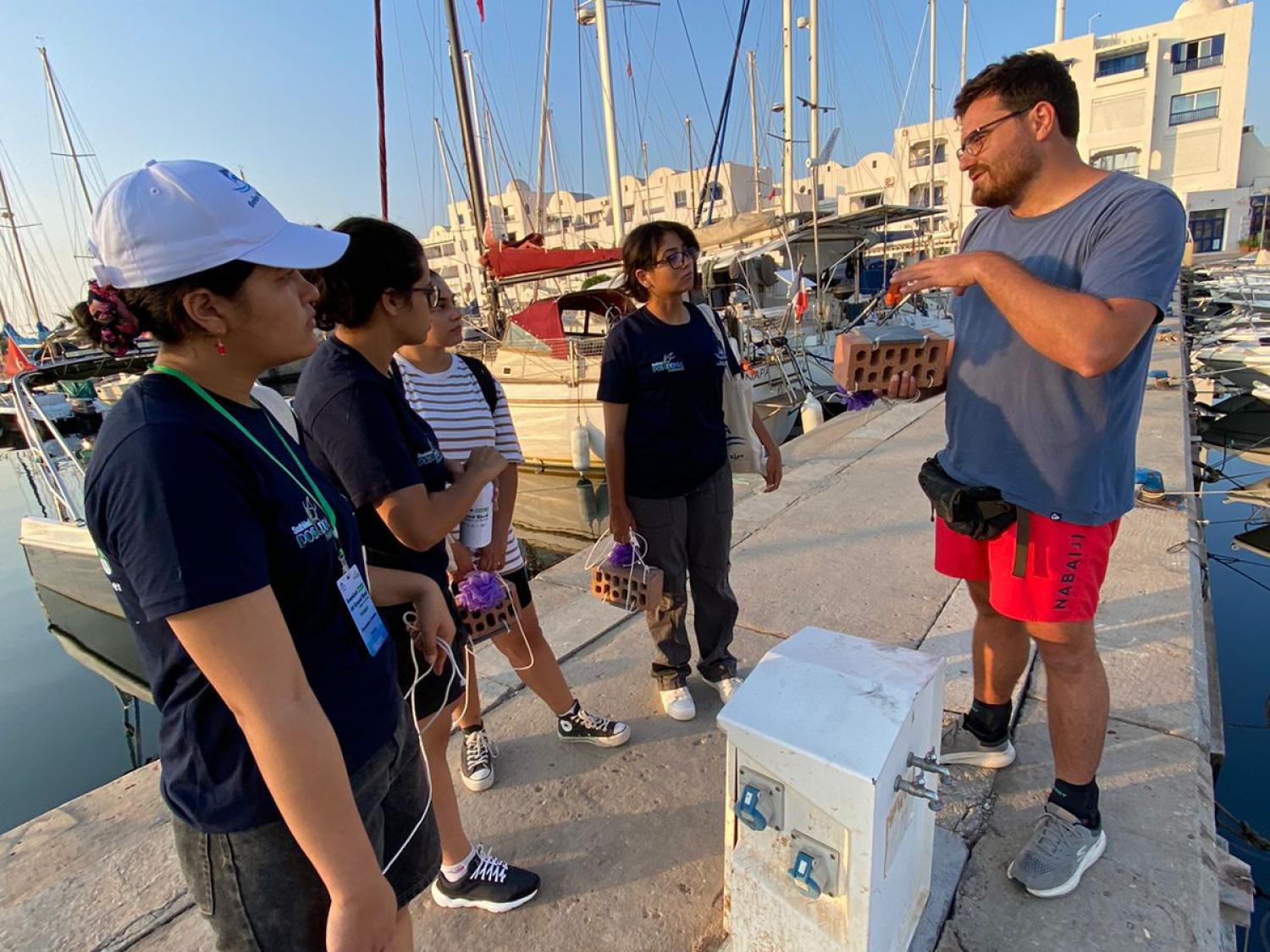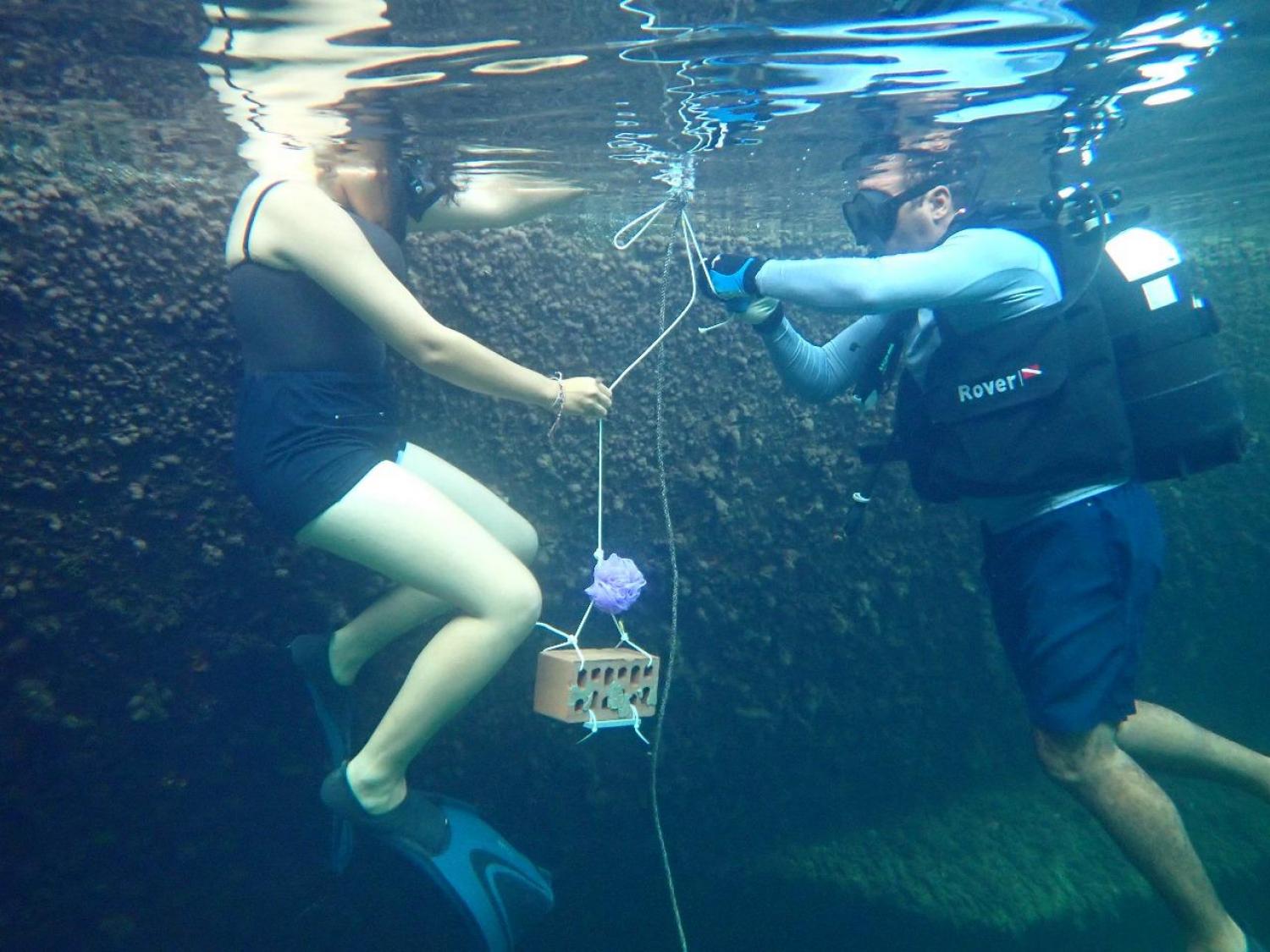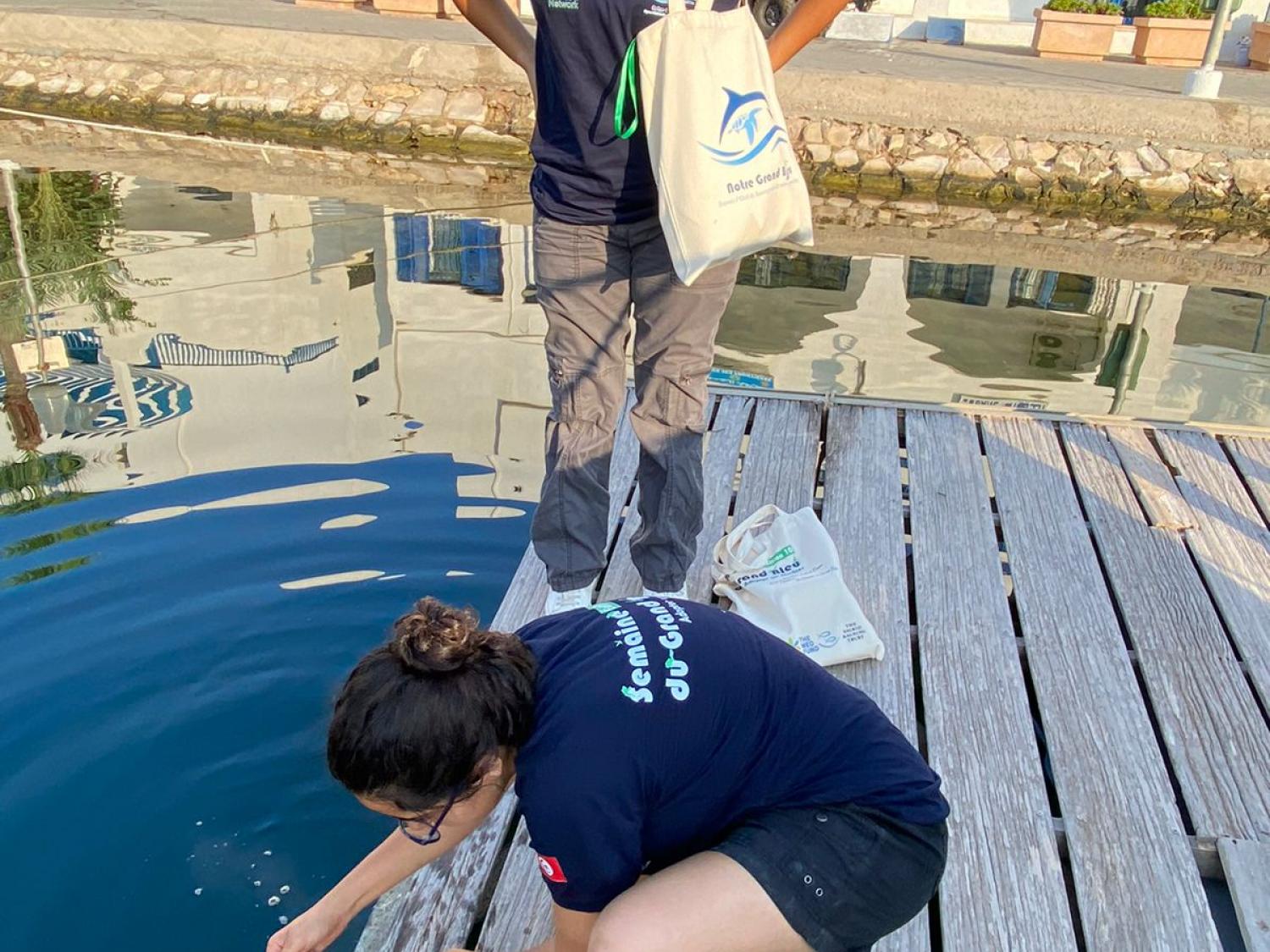Tunisia
Monastir Bay is a sanctuary for sea turtles and flourishing Posidonia meadows. Our dedicated conservation efforts ensure these vital ecosystems thrive for future generations. -- Sahar Chebaane, PI of MarineGEO Monastir Bay
Monastir Bay, located in the Mediterranean Sea within the Tunisian Plateau and Gulf of Sidra ecoregion, is a vibrant part of the Temperate Northern Atlantic marine realm. Despite challenges like pollution, this area is renowned for its rich marine biodiversity. The bay includes the protected Kuriat Islands and supports significant human activities, including tourism and fisheries.
Notre Grand Bleu operates the Mediterranean Environmental Training Center, dedicated to fostering environmental education and action. The center features an eco-museum showcasing Monastir’s biodiversity, an educational room, an aquaponics unit, and a laboratory. Our primary research interests include Study the Mediterranean marine biodiversity, endangered species, coastal protection strategies and habitat restoration. Key highlights of our work include co-managing the marine protected area of Kuriat Island, expertise in coastal zone management, public awareness initiatives, sustainable tourism, and marine turtle conservation. We have worked to protect loggerhead turtles by designing protocols to reduce the impact of turtle-watching tourism, collaborating with fishermen and local communities to reduce bycatch and poaching, monitoring and protecting nesting sites, and successfully eradicating rats from Grande and Petite Kuriat, where this introduced species was a major threat to young turtles. Ongoing projects involve monitoring Posidonia, sea turtles, marine birds, non-indigenous species, fish, seagrass beds, blue carbon, cetaceans, and terrestrial flora. As part of MarineGEO, we have started deploying panels for fouling community assessment and monitoring in marinas, harbors, and aquaculture facilities. The Alliance PAME South-MED, created by Notre Grand Bleu, aims to establish a network of marine protected areas along the southern Mediterranean coast. The first workshop on monitoring Posidonia oceanica habitat is scheduled for May 2024. Notre Grand Bleu offers its facilities for workshops or events related to marine ecosystem conservation.
MarineGEO Team
- Principal Investigator: Sahar Chebaane
- Ahmed Ghedira, President, Notre Grand Bleu
- Juan Sempere Valverde
- Mehdi Aguir
- Islem Ben Hamouda
- Ramla Bouhlel
- Farah Boussema
- Malek Chaarana
- Seif eddine Triki
- Aya Garbouj
- Eya Hadjyoussef
- Amjed Khiareddine
Participating Institutions
Social Media
- Twitter: @NotreGrandBleu
- Facebook: https://www.facebook.com/notregrandbleu.official
- Instagram: notre.grand.bleu
Other Resources
- IUCN Member: https://iucn.org/our-union/members/iucn-members/notre-grand-bleu
